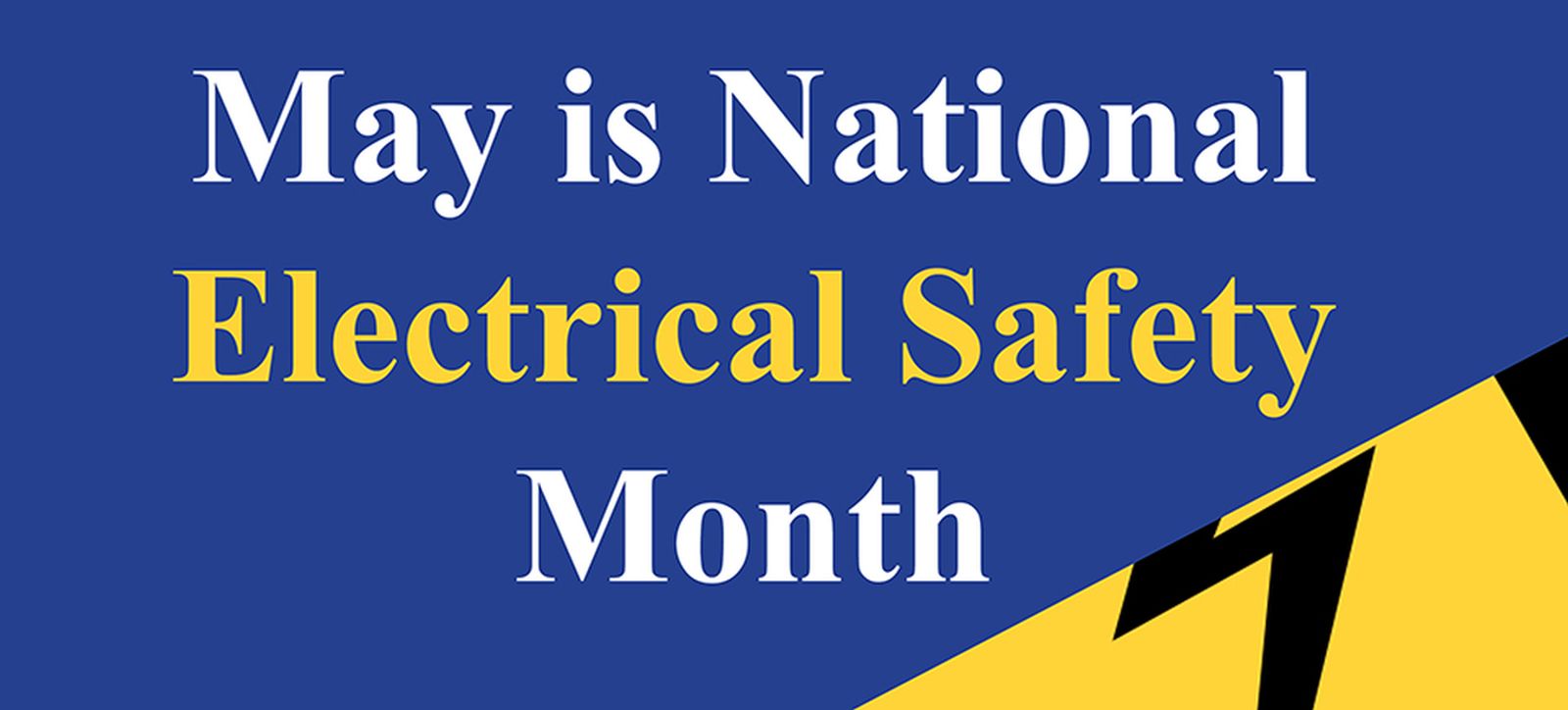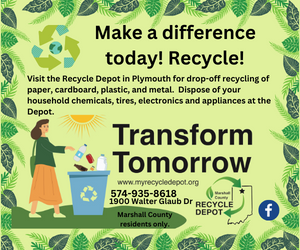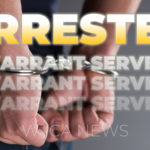May is National Electrical Safety Month and NIPSCO is reminding customers of the
importance of safety by providing tips and guidelines to help keep customers safe around electricity.
“Safety is at the forefront of everything we do at NIPSCO,” said Orville Cocking, NIPSCO Senior Vice
President of Electric Operations. “That is why it is important for everyone to understand how to safely
utilize electricity to power everyday life, and how to respond when encountering an emergency.”
What to Do if You Find a Downed Power Line
Downed wires can pose serious risks, including electric shock and fire hazards. Therefore, it is important
to consider all downed wires as energized and dangerous, even if it appears that the wire is not live.
If a downed wire is encountered, follow these safety tips:
- Stay Away and Keep Others Away: Maintain at least 50 feet from the wire and the surrounding
area. If you are in a populated area, warn others to stay away. - Call 911: Call 911 and provide as much detail as possible about the downed wire and its location.
Let them know if anyone requires medical attention. - Call NIPSCO’s 24/7 Electric Emergency Hotline: Call our 24/7 emergency number at 1-800-4-
NIPSCO (1-800-464-7726). Let the operator know you have called 911 and notify them of the
downed wire. Provide as much location detail as you can. - Wait for Assistance: Remain calm and wait for emergency responders to arrive and safely
remove the downed wire. Keep in mind that electricity can travel through the ground, trees and
other objects. Never move these objects or use another object to move a downed wire.
If inside a vehicle and a downed wire falls on it, follow these instructions:
- Stay Inside the Vehicle and Remain Calm: Your instincts may tell you to exit the vehicle, but it is
imperative to stay inside your car and do not attempt to exit. The car’s tires can possibly act as a
catalyst for electric shock. - Only Exit the Vehicle if You’re in Immediate Danger: If you absolutely need to exit your vehicle,
exit by jumping away from the vehicle and try landing with both feet close together. Avoid
making contact with the metal frame of the vehicle. Walk away by shuffling your feet. - Report the downed power line to 911 and NIPSCO: Await assistance from emergency
responders. Do not attempt to move the wire.
Keep in mind that if you see trees near power lines, that can also pose serious risks. Sometimes after
storms, branches can break and trees can fall, pulling down power lines. Treat this as an emergency and
follow the tips above on what to do if you encounter a downed power line.
Power Generator Safety: Use Caution and Prevent Hazards
Generators are handy when it comes to outages; however, it is crucial to make sure that everyone is
taking steps to stay safe when using them. Below are some tips to follow.
- Use Generators Outside Only: Make sure to position the generator (especially gas-powered
generators) in a well-ventilated area away from doors, windows and garages to avoid the
potential for carbon monoxide entering the home. - Use Only Outdoor-Rated, Grounded Extension Cords: Look for extension cords with a GFCI
(ground-fault circuit interrupter) to avoid getting shocked if cords get wet. - Don’t Plug a Generator into a Regular Household Outlet: Keep the extension cord for the
generator separate from the outlets in the home. Only connect individual appliances to the
receptacle outlet of the generator. Otherwise, it may damage the home’s wiring, start a fire and
back-feed electricity into the utility system and energize a line thought to be without power. This
can seriously injure or kill a NIPSCO worker because they wouldn’t know the line is live. - Use a Different Extension Cord to Power Your Home: Use a separate extension cord exclusively
for the generator powering the home. - Use a Transfer Switch to Prevent “Back-Feed”: The installation of a transfer switch safely allows
the home’s wiring system to be easily and cleanly attached from NIPSCO’s system. This allows
the user to control the flow of electricity to those circuits needed most until power is restored—
such as to a fridge or furnace fan. Transfer switches require installation by a licensed electrician.
If a transfer switch is not installed, shut off the main breaker of the service panel to help prevent
electricity from feeding back into the power grid or household circuits, which could cause
hazards. - Avoid Overloading the Generator: Don’t overload the generator with too many appliances and
equipment. Read and follow wattage guidelines in the owner’s manual. - Keep Children and Pets Safe: Keep children and pets away from portable generators at all times.
- Turn it Off Safely: Before shutting down the generator, turn off all the equipment being powered
by it.
Ladder Safety: Ladders and Electricity Don’t Mix
Outdoor spring projects are underway, and it is important to note that ladders and electricity don’t mix.
When completing outside work and carrying a ladder, make sure to use caution when carrying the ladder
near overhead electrical lines.
Remember these tips:
- Stay 10 Feet Away from Power Lines: Make sure to keep the ladder and your body away from
power lines. - Use Fiberglass Ladders: When possible, consider using fiberglass ladders. Electricity can travel
through ladders made of metals such as aluminum and even wooden ladders, especially if they
are wet. - Use Caution Near Trees: Trees contain water and electricity can travel through water and harm
you. - Be Aware of the Surroundings: Don’t let any tools or materials make contact with power lines.
Additional Electric Safety Tips:
- Inspect Electrical Cords and Equipment: Regularly check electrical cords, plugs and equipment
for signs of damage, such as fraying, exposed wires or cracks. Replace damaged items
immediately. - Use Extension Cords Safely: Use extension cords temporarily and avoid running them under rugs
or carpets. Do not overload extension cords or use damaged cords. - Keep Water Away from Electricity: Keep electrical appliances and cords away from water
sources to prevent electrical shock. - Unplug Unused Appliances: When not in use, unplug appliances to reduce the risk of fire and
save energy. - Use Childproof Outlets: Install outlet covers to protect children from inserting objects into
outlets. - Avoid DIY Electrical Work: Leave electrical repairs and installations to the licensed professionals.
To learn more about electrical safety, visit NIPSCO.com/Safety/Electrical-Safety.











